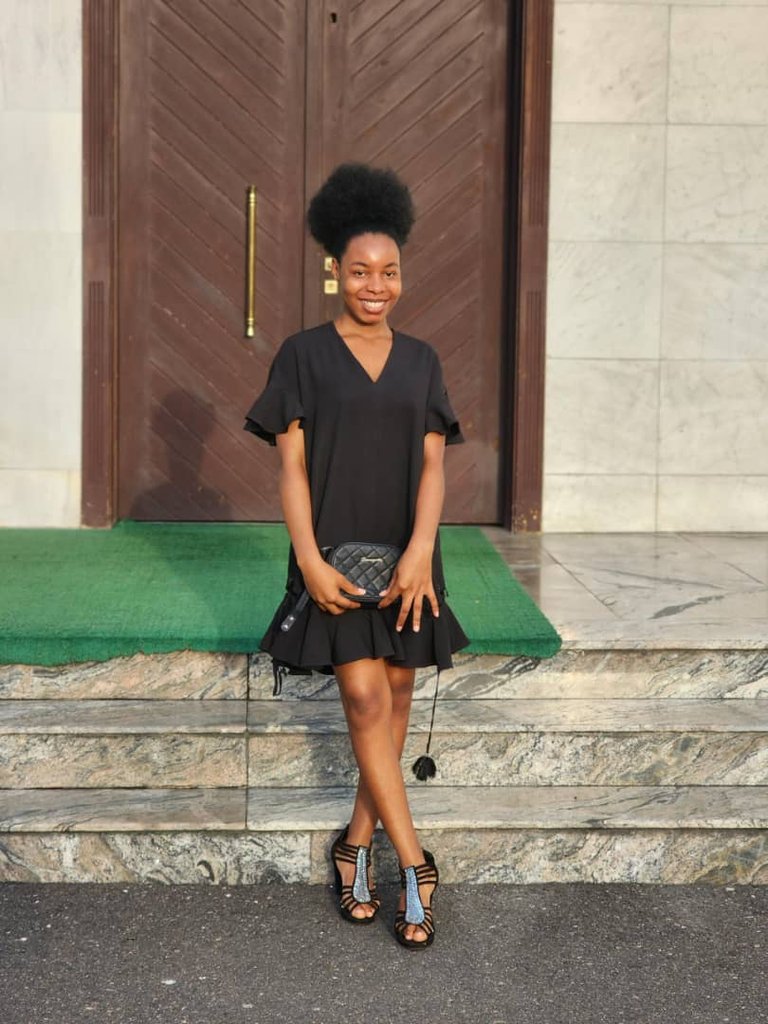Beauty without brain ; catastrophe.

In a small village called Elekahia where I grew up life was simple. People woke up with the crow of the cock, swept their compounds, fetched water, and greeted each other with smiles. I recall a certain event that took place years back.
In that village lived two best friends—Imeh and Ada.
They grew up like sisters. They shared roasted corn after school, played under the mango tree, and laughed about everything. Imeh was calm, humble, and didn’t care much about fashion. Ada, on the other hand, always wanted more—fancy clothes, big shoes, city life.
One day, Ada got a scholarship to study in Lagos. Everyone clapped for her. Imeh cried, but hugged her tight.
For a long time, Ada didn’t call or write. Imeh missed her but kept believing her friend would return.
Three years later, Ada came back—and she was different.
She arrived in a car with dark glass. Her skin was glowing, her nails red, her hair long and straight like the ones in magazines. The whole village came out to look.
“Is this our Ada?” someone whispered.
Imeh ran to hug her, but Ada only smiled.
“You still wear wrapper?” Ada asked, eyeing Imeh’s simple dress. “Babe, you need to upgrade.”
Imeh laughed, even though it pinched her heart. She was just happy to see her friend again.
But things started changing.
The girls in the village began copying Ada—her makeup, her shoes, even her accent. Imeh felt invisible. Boys who used to greet her stopped noticing her. But she didn’t mind. She kept helping Ada—cooking for her, ironing her clothes, and listening to her Lagos stories.
Then, one day, news spread that a rich man, Mr. Uko, was looking for a young lady to train as a radio presenter in Calabar. The only thing he wanted was someone that looked “presentable” and could speak well.
Imeh was excited. She had a sweet voice, and people always said she spoke clearly. She began practicing every night with her little mirror.
Ada didn’t show interest at first.
The interview was set at the village hall. Imeh wore her neat gown and packed her hair well. She was nervous but ready.
Then Ada showed up.
She wore a shiny gold dress, high heels, and red lipstick. Everyone turned to stare. Even Mr. Uko smiled when he saw her.
Imeh’s turn came first. She spoke with confidence. Her words were simple but from the heart. The crowd clapped.
Then Ada took the mic. She laughed a lot, used plenty of English words, and swayed while talking. Some people looked impressed. Others looked confused.
The next day, Mr. Uko made his choice.
He picked Ada.
Imeh smiled and congratulated her, but when she got home, she cried.
Weeks passed. Ada went to Calabar. Photos of her in fine clothes and big wigs started appearing on WhatsApp. Imeh tried not to feel bad.
But then one afternoon, Mama came home from the market with news.
“They said Ada has been dropped from the job,” she said. “She couldn’t read the scripts properly. She was always late.”
Imeh felt cold. Not because she was happy, but because she had seen it coming.
A few weeks later, Ada returned to the village quietly. No car, no makeup. Just a nylon bag and tired eyes.
She came to Imeh’s house and sat on the bench quietly.
“I messed up,” Ada said. “I thought looking beautiful was all that mattered.”
Imeh looked at her. Her heart hurt, but she said nothing.
“I pushed you away,” Ada continued. “You were the real friend. You were always there.”
Imeh nodded slowly. “Not everything that shines is real gold,” she said.
The wind blew gently. It was harmattan season again—dry, dusty, and cold.
The village had moved on. People no longer chased Ada around. Her glitter had faded. But Imeh? She was still standing—real, true, and golden in her own way.
The image used is mine
I love your creativity—such a powerful and meaningful story. Well done!
Thank you
Sometimes good things comes to us but we use our hands to destroy them. If she was disciplined with her job and not carried away by her beauty, I am sure she wouldn't have lost it. Am glad it taught her a lesson and brought their friendship back to life
Thank you for stopping by
She was close to becoming a radio host, but she decided on what her conscience truly dictated. This story not only describes the "All that glitters is not gold," but also the self-worth of someone who loves themselves just the way they are. Excellent @ubdan313!
You're so right
Thank you for stopping by
Interestingly it's not all about look, worth and real experience is the key to lasting in any organization. I'm pretty glad Ada learned her lesson though in an embarrassing way.
Thanks for sharing....
Thank you for stopping by 😊